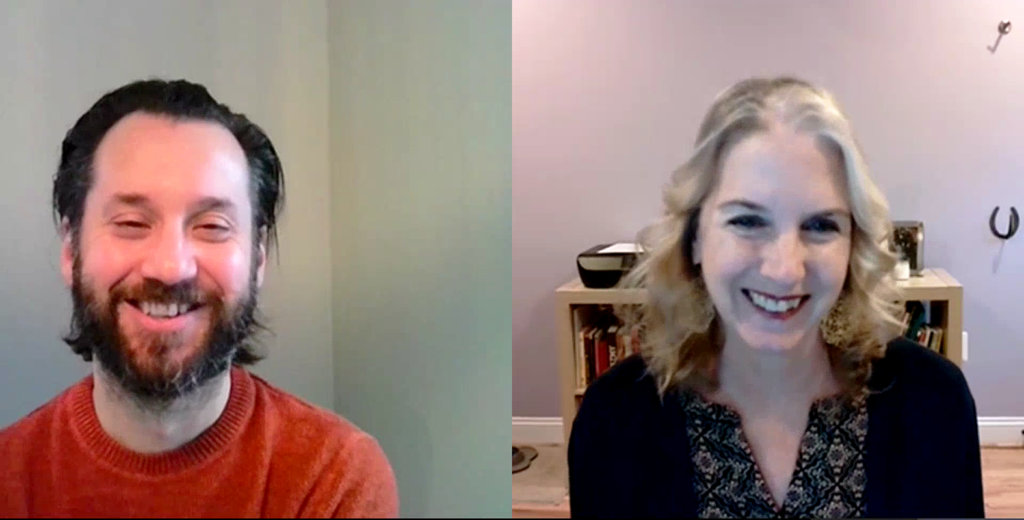Editor’s note: Editor-in-Chief Annette Brown and former Managing Editor Corey White sat down recently to reminisce about the first five years of the blog, including challenges they encountered and some of their favorite posts.
Corey: Of course, it’s my pleasure.
Annette: When Corey and I first started working together and thinking about this blog, we both shared a common vision, which was that the blog would highlight the thought leadership of our FHI 360 colleagues talking about research, evaluation, data and evidence use – not in a way that would be an advocacy blog or promotional blog, but a platform that would publish thoughtful posts about research and evaluation and evidence. And I think we’ve pretty much managed to achieve that. What do you think, Corey?
Corey: Yes, I do think we’ve done a good job of doing that. And we managed to publish 200 posts from 113 different authors from around the world in virtually every topic and format that we could imagine.
Annette: It was not always easy because I think so many people are used to blogs being either entirely opinion or commentary meant for advocacy purposes, which is not a bad thing. A lot of our authors really wanted to write promotional posts about the projects that FHI 360 implements.
Corey: I think that was one of the hardest things to overcome as the managing editor — keeping authors within the parameters we set out to achieve. Throughout the last five years, our series of how-to posts were actually the least difficult to accomplish because an author is simply explaining how to do something rather than summarizing their own research or someone else’s work.
How-to posts spark creativity
Annette: What were some of your favorite how-to posts?
Corey: We launched the blog with a sampling series, and in that series is a post from Emily Namey about qualitative research. I learned a lot (somewhat accidentally) about the importance of search engine optimization, which is simply ensuring that you’re using the right keywords within a post and title so it’s found in searches like Google. And Emily’s post really hit the mark on that. Not only is it very informative, but it answers a question that readers often Google: How many interviews or focus groups do you need in your qualitative research?
Annette: Emily also had a poem in that one that works as a mnemonic, which was a lot of fun.
Corey: Definitely. You know one of the other posts that I liked in the how-to series was your post on why someone should publish in journals.
Annette: That post was an unexpected opportunity that came from what I was doing in my job at the time, which was trying to encourage development practitioners in the company to think about conducting research and to publish that research in journals. I thought, hey, I keep making the same arguments over and over again. Why don’t I just write them up in a blog post as a way to have it in a written form that not only can benefit our own staff, but can benefit other practitioners who are also considering whether it would ever make sense for them to publish in a journal. It was a neat way to take advantage of the work that we were doing outside of the blog at the time.
Corey: Right, and to complement that narrative, we also had two posts from Allison Burns, our library manager. Annette, your post argued why it’s important to publish in journals, and Allison had two different posts that explained how to find the right journal for your manuscript, one of which talked about finding that journal, but also how to avoid predatory journals. And then in a second post, she explained a software called EndNote, which allows you to insert keywords and then provides you with journal suggestions. So, there are several how-to posts that complement each other.
Annette: Those posts gave us an opportunity to link between posts. And as you said, there was the sampling series, a publishing-in-journals series, and sometimes it wasn’t really that we set out to do that, but it was nice to be able to have some common themes run through a set of posts like that.
Interns bring inspiration
Annette: Some of our other posts I like to think about are the ones that we wrote with our own interns, right?
Corey: Our interns are always fun to think about.
Annette: I was just looking at some of those posts the other day. One was written by Caroline Harik, and while everybody was and still is writing about COVID-19, she found a really interesting angle by looking at research that asks the question whether women leaders might be better suited to lead during periods of stress, like the pandemic, than men. She summarizes one article that shows using data from across U.S. states that in fact COVID death rates are lower in states that had women governors during some of the key periods of the outbreak. So that turned out to be a really interesting post, and she found that angle and that research all on her own.
Another post that I remember was one that Ishak Mohammed wrote about HIV serodiscordant couples and what they go through when deciding whether or not to have children. And I always giggle a little bit because poor Ishak came in, and he wanted to write about climate change (and he did get to write about climate change, but we said, “Look, there’s these really interesting articles that have come out, and we’d really like someone to summarize them.”
Corey: How about Jackie’s posts?
Annette: You know, Jackie Shieh wrote some great posts, but I think what turned out to be the most fun was the post that we ended up writing altogether with Jackie. In fact, I think that’s the only post you and I have written together. And we ended up writing it with an intern, and that one also had a fun title, R-E-S-P-E-C-T: Find out what a study’s unintended consequence means to me, right?
That was one of the situations where we took the opportunity to write about some of our colleagues’ research. It was interesting because it talked about how they went in to conduct research, found a result that was unexpected, and then designed further rounds of their data collection to tease out that unexpected finding a little bit more. I think that was a really important finding because it was a female empowerment program that in some ways encouraged girls to be good girls but actually might have hurt them because it empowered them less against things like violence.
Mentoring of staff leads to success
Annette: I know, right?
Corey: Blog post writing definitely ventured into writing territory that made people hesitant — I think largely because they are, just as I said, used to writing in a certain format. The format is easy for people to overthink and then hesitate to put their words on paper, particularly if their first language isn’t English. Given that over half of our colleagues are based outside of the United States —
Annette: Three-fourths!
Corey: — that’s right. So, throughout the last five years, we were deliberate at cultivating the thought leadership of our colleagues who may speak English as a second language or are simply less comfortable writing blog posts. And I think we had a lot of success in that area. One of my favorites is from Halima Oji, who wrote about a methodology that a research team in northeast Nigeria used to collect real-time nutrition data during the crisis unfolding there.
Regardless of whether an author writes confidently in English or whether they are a researcher more accustomed to writing manuscripts, I often find the biggest hurdle is simply getting the first post published and over with.
Our former colleague Judith Nalukwago is a great example of that. Judith published a paper in a journal, and I approached her to blog about it. After finishing that first post, she wrote two more posts in the subsequent six months. I think that’s a great illustration that sometimes the biggest hurdle is just getting started or becoming familiar with the platform format. Many of our 200 posts are written by first-time blog post authors.
Annette: You know, it’s interesting because you’re talking about when we had to mentor our academic colleagues to write in a blog post format where we were trying to encourage them to put their voice into it and to make the narrative a little more conversive. But we also continue to have the other side of the coin, which is our project colleagues who are used to writing success stories. Then we were mentoring them away from writing “this project’s great” to instead say “these are the great project data we’ve collected and how we’re learning from those data” or “here is the evidence we used when designing the project,” and so really that sweet spot. We’re working with our colleagues who come from a wide spectrum of contributions to human development work. What can we learn about research, evaluation and evidence? It’s been quite a ride so far.
Corey: This approach — the staying focused on the research, evaluation and evidence rather than overt marketing — runs through all five years. You, as editor-in-chief, set the tone early, and you helped me ensure we stayed consistent. And I think that has made our platform stand out.
Annette: I can’t thank you more for the leadership that you put into creating and promoting this blog and for mentoring so many FHI 360 colleagues along the way. I’m going to miss you, but I’m glad to know that you will continue to be one of our most dedicated readers. Thank you very much, and I do want to take this opportunity to also thank our interim managing editor, Sarah Muthler, who’s done a great job, including helping us put this post together today.
Photo credit: Sarah Muthler/FHI 360




